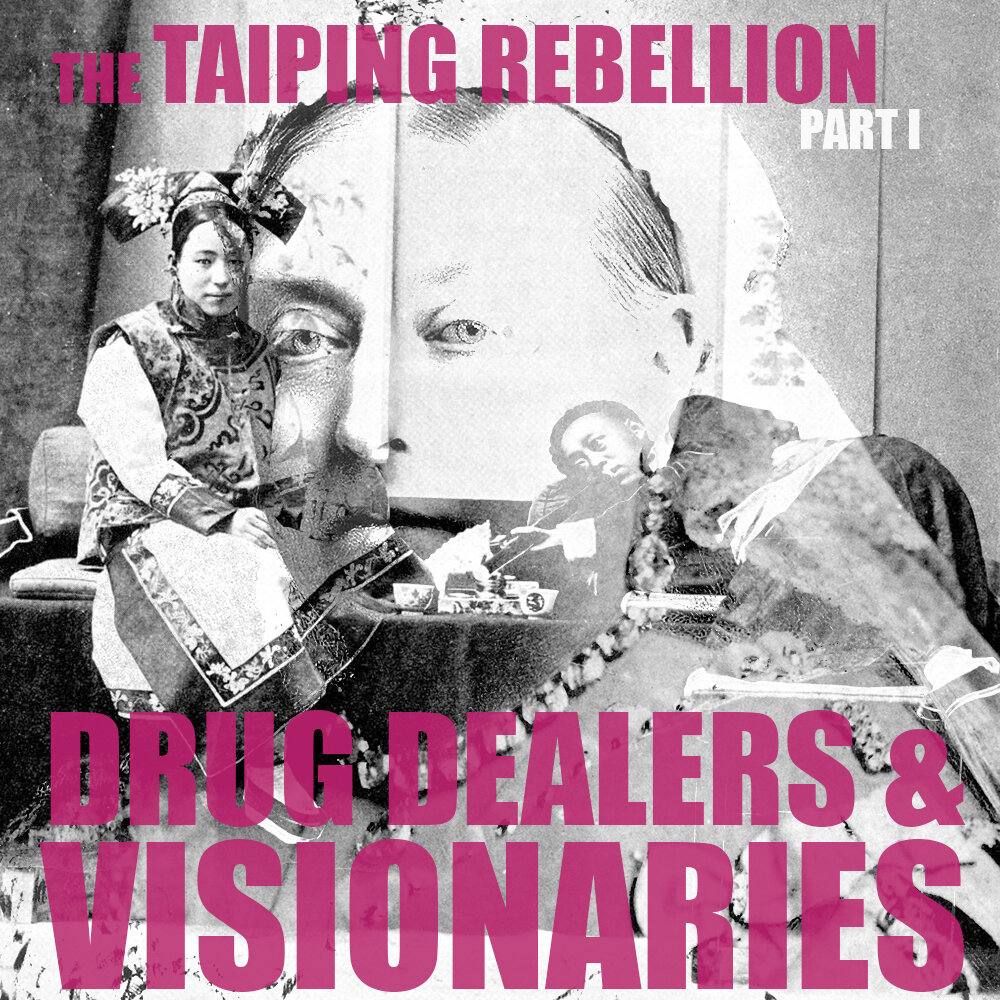Episode Summary
“The entire story of the Taiping Rebellion might be told, from one perspective, as the rage of a failed exam candidate writ large.” — Stephen Platt“They may not intend to harm others on purpose, but the fact remains that they are so obsessed with material gain that they have no concern whatever for the harm they can cause to others.” — Lin Zexu about British opium traders “Heaven is furious with anger, and all the gods are moaning with pain!... A murderer of one person is subject to the death sentence; just imagine how many people opium has killed! This is the rationale behind the new law which says that any foreigner who brings opium to China will be sentenced to death by hanging or beheading.” — Lin Zexu“… soothing, quieting and delightful beyond measure.” — Queen Victoria about opium If I were to ask you which is the deadliest conflict in history, you’d probably answer WW II. But if I were to ask you which is the second deadliest conflict ever—at least according to most historians—I’d bet the number of raised hands would shrink quickly. And I’d also bet that a good percentage of those taking their chances with an answer would probably be wrong. So, welcome to the wildest, weirdest, biggest conflict in history that few people have heard about (that is…unless you are quite knowledgeable about Chinese history). Millions of troops took part in this war. Something in the neighborhood of 600 cities changed hands over decade and half of fighting. Conservative estimates place the dead around 20-30 millions (some estimates go as high as 100 millions.) For frame of references, this is deadlier than the Iraq War, the War in Afghanistan, the Vietnam War, the Korean War, the Spanish American War, the American Civil War and the American Revolution put together. We can also throw in the 7 Years War, all three Punic wars and all of the Crusades for good measure. In light of this, it may begin to make sense why several historians believe this is the bloodiest civil war of all time. It all began with a Chinese man who, in the mid-1800s, dreamed of becoming a scholar and receive a government job. Seems
